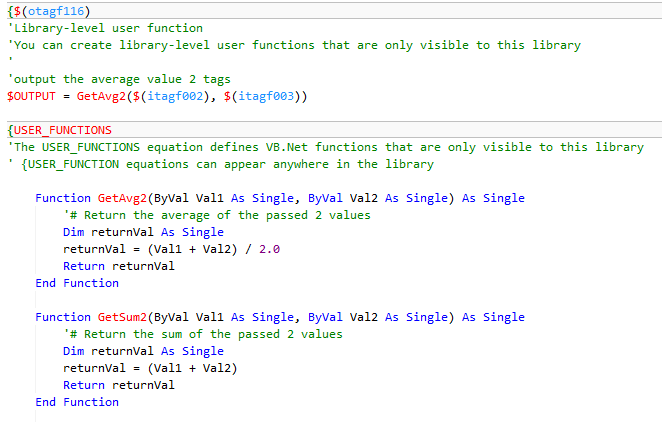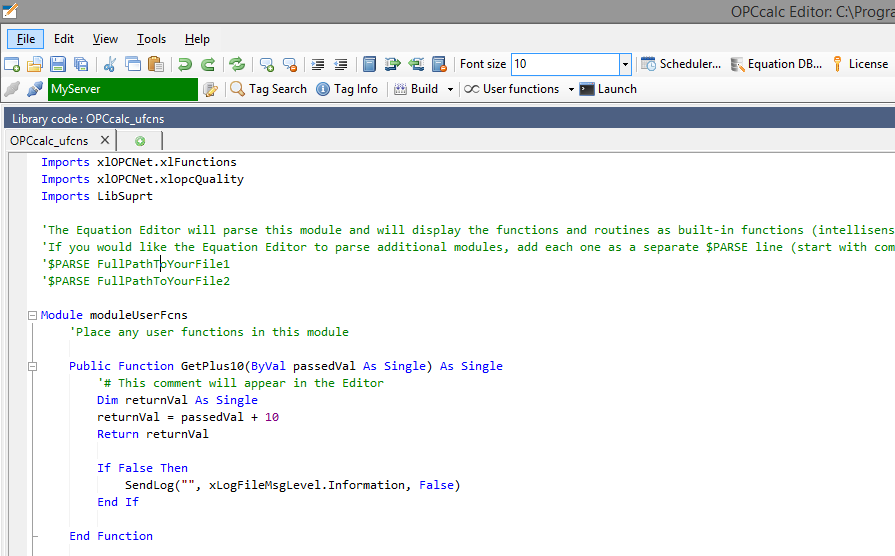OPCcalc® and EDICTvb.Net (v.4.1.2)
OPCcalc® is a vendor-neutral, process calculation framework for OPC data. OPCcalc allows you to easily create and manage process calculations that read and write current and historical OPC data.
EDICTvb.Net™ is a process calculation framework for OSISoft PI. EDICTvb.Net allows you to easily create and manage process calculations that read and write current and historical PI data.
Version 4.1.2 Release
Version highlights:
- Visual Studio 2013 support
- Library level user functions {USER_FUNCTIONS
- Editor: Open/edit user function module(s) in Editor
- Recalculation: option to recalculate without output cache
Visual Studio 2013 Support
Calculation libraries can now be build using .Net Framework 2.0 through 4.5.1, and Visual Studio 2005 through 2013. The free Express versions are also supported.

Library level user functions {USER_FUNCTIONS
In previous versions, user functions could be created that were visible to all libraries. These “global” users functions were created in a separate user functions module.
User functions can now be created for a single library by including the user function code within {USER_FUNCTION equations.
Editor: Open/edit user function module(s) in Editor
The global user function module(s) can now be opened and edited by the Equation Editor. Previous versions required Visual Studio to edit the global user functions modules.
Recalculation: option to recalculate without output cache
In previous versions, recalculation would cache all recalculated output values in memory, then delete/output after the entire recalculation period was processed. If an output tag value was read by another equation or called library during recalculation, the retrieved value was not correct since it was still in the cache.
A new option will perform recalculation without using the cache. Output values are deleted/written at the end of each equation for each recalculation interval. This is similar to the way a real-time equation library executes.


